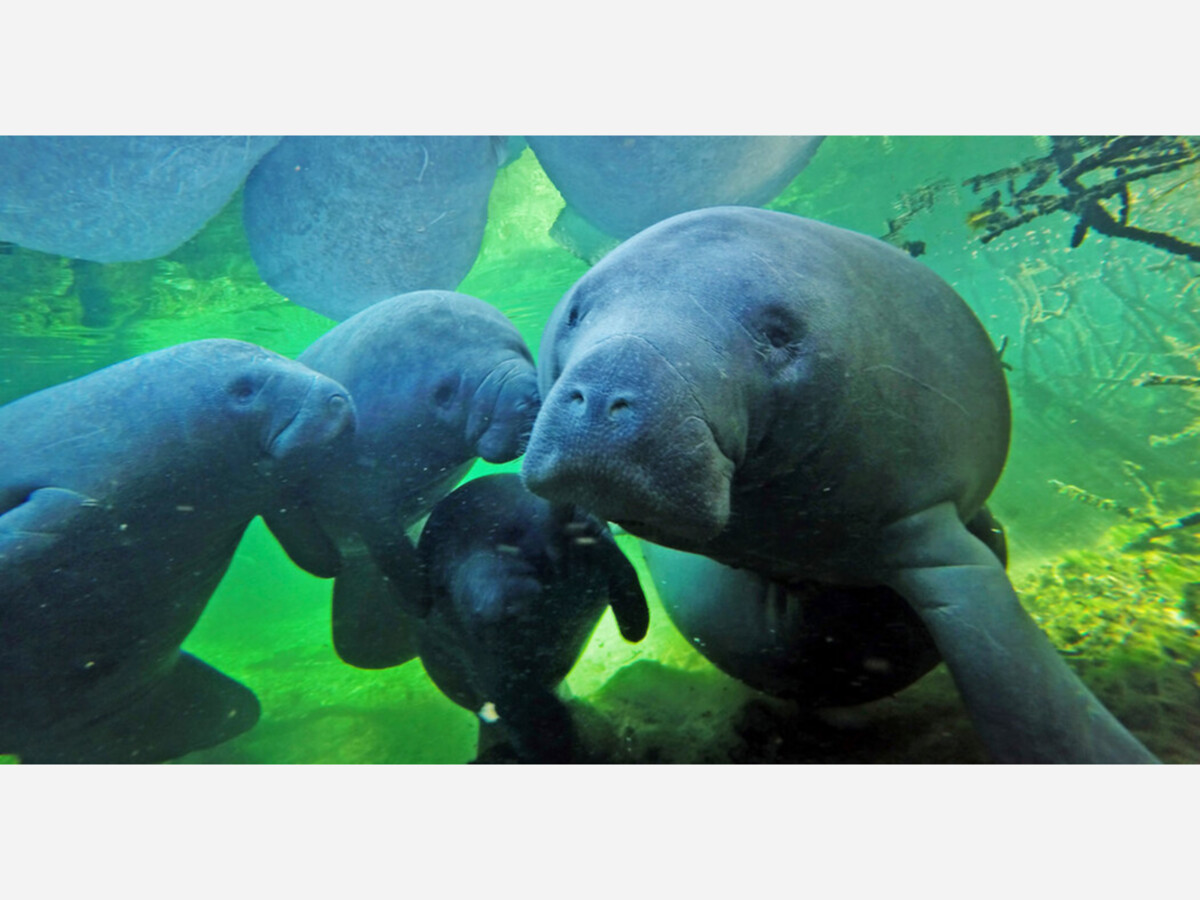Image

A catastrophic die-off of manatees has continued this winter, despite the unprecedented intervention of state and federal wildlife agencies to save one of Florida’s most beloved animals.
The bodies of 85 manatees were recovered last month on Florida’s Atlantic coast, most dead of starvation in the area of the Indian River Lagoon, officials said Wednesday in an online news conference. On Friday alone, wildlife officers recovered 16 carcasses, most in Brevard County.
“That is the same pattern we had last winter, and these numbers will continue,” said Dr. Martine deWit, the veterinarian who examines dead manatees for the state of Florida.
RELATED: Environmental groups take steps to sue EPA over manatee deaths »
Rescue operations continue, with wildlife officers trying to capture emaciated manatees to rehabilitate them. But well more than a dozen manatees are known to require a rescue and so far have not been caught, said Andy Garrett, manatee rescue coordinator for the Florida Fish and Wildlife Conservation.
Rescuers are “seeing thin animals, emaciated animals,” he said.
A record 1,101 manatees died last year, most from starvation in the Indian River Lagoon area, according to the state wildlife commission. Last November state and federal officials set up a unified command to address the manatee deaths, increasing patrols, beefing up rescue efforts for manatees in distress, and taking the unusual step of offering them food.
The manatees have run short on seagrass to eat, as pollution washing off cities and farms has killed vast areas of seagrass in the lagoon. With the lagoon’s pollution problems unlikely to be solved any time soon, officials said they expect the manatees’ ordeal to last at least through next winter.
Environmental groups have sued over the deaths, accusing the U.S. Fish and Wildlife Service of failing to designate sufficient areas as “critical habitat” for the threatened marine mammals. Environmental groups also have filed notice of intent to sue the Environmental Protection Agency over what they said was the agency’s failure to step in to stop the pollution of the lagoon.
“The Florida manatee crisis is the result of a failure to protect manatee habitat,” said Jaclyn Lopez, Florida director of the Center for Biological Diversity, one of the groups suing the federal government to protect them.
“Just like humans need safe places to rest, eat, and raise their families, manatees need all those things from our waterways. We messed up in allowing these waters to get so polluted that seagrasses collapsed and now so manatees are dying.”
Particularly dangerous for manatees has been the recent cold weather. Intolerant of water temperatures below 68 degrees, manatees huddle around the discharge zones of power plants during periods of cold.
But because so many gather together — a one-day survey last week found 303 at the Port Everglades power plant — they strip the surrounding area of food.
“Sadly, it is playing out like we feared with the onset of cold weather and a feeding program that had not connected with the majority of the manatees,” said Patrick Rose, executive director of the Save the Manatee Club.
Near the feeding site by a power plant in the Indian River Lagoon, where lettuce has been placed in the water for manatees, he said a drone flight recently detected about 1,100 manatees. But he said it wasn’t clear that the feeding site was offering enough food or attracting the majority of the manatees.
“I am very appreciative of the efforts but feel we must verify that every practical measure is being taken to prevent the situation from devolving into a repeat of last winter,” he said.
With the arrival of spring, manatees will be in less danger because they will be able to roam farther north for food. But officials said they expect the starvation to resume next winter.
“The seagrass issue is not going to be solved by next year,” said Reinert of the state wildlife commission. “We’re anticipating we may have to repeat this process again next winter, using the lessons we’ve learned from this winter to help guide us.”
“We’re doing everything we can to try to support this species,” he said.
To report a manatee in distress or a dead manatee, call the state’s wildlife alert hotline at 888-404-3922.
Courtesy: South Florida Sun Sentinel
https://www.sun-sentinel.com/news/environment/fl-ne-manatee-starvation-…